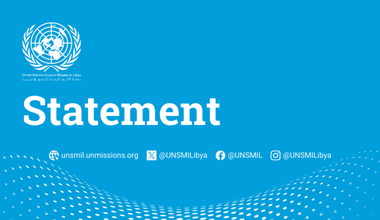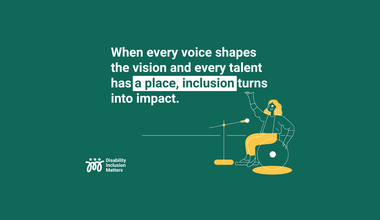Statement of the Co-Chairs (Netherlands, Switzerland and UNSMIL) of the International Humanitarian Law and Human Rights Working Group of the International Follow-up Committee on Libya on International Women’s Day
‘Libyan Women Are a Force for Change’
On International Women’s Day, the co-chairs of the Working Group on International Humanitarian Law and Human Rights established under the Berlin process – the Netherlands, Switzerland, and UNSMIL, represented by its Human Rights, Transitional Justice and Rule of Law Service – reiterate the critical role of Libyan women and women’s civil society organisations in securing sustainable peace, equitable economic development, democracy and human rights in the country.
“Libyan women have shown that they are a force for change in Libya’s political process,” the Working Group co-chairs said. “As the country’s political process establishes new governance structures, Libyan women will continue to play a critical role as participants in political talks, activists to foster sustainable peace, and leaders in promoting rights-based reconciliation and transitional justice, both on the national and local levels.”
The presence and active role of women members of the Libyan Political Dialogue Forum (LPDF) ensured that the country’s political roadmap reiterates guarantees for the promotion and protection of human rights, emphasizes equality between men and women, and commits to a comprehensive national reconciliation process based on transitional justice principles.
The LPDF roadmap further commits to 30 per cent of women in senior executive positions, a commitment that should be viewed as a minimum and not a ceiling, the Working Group co-chairs stressed. The representation of women in the country’s political and public life must be meaningful – not merely symbolic – enabling their active participation and engagement in all levels of government.
As incidents in recent years have demonstrated, Libyan women and girls face severe obstacles to participation in public life. Women, including civil society activists and human rights defenders who dare to speak out, have been targeted with violence, abuse, social media vilification and threats, rape and other forms of sexual violence. Prominent women have been forcibly disappeared and killed in broad daylight, with few if any steps taken to hold perpetrators of these attacks responsible. Any violence, including online violence, hate speech and incitement against women, should be strongly condemned and perpetrators brought to justice.
“The political process should promote and advance women’s rights and factor in their needs, including for the upcoming elections”, the co-chairs asserted. “Libyan women are drivers for sustainable peace. It is up to the country’s leaders and international partners of Libya to support them.”
 United Nations Peacekeeping
United Nations Peacekeeping UN
UN









